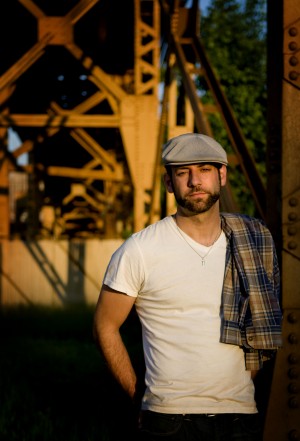The Education of Kevin Coval: Conversations of Hip-Hop, Race, and Inequities
Race — such a small word for a myriad of meanings and histories. In the wake of the Trayvon Martin tragedy, the country has begun to speak again about racial ethics and how we view others. Is an honest conversation essential to the understanding, growth, and dynamics of a people that can co-exist peacefully? Whose responsibility, then, does it become to create that dialogue? There may not be one single person that such enormously loaded duty can be placed upon. However, people like Kevin Coval are doing their part to lead one of the most uncomfortable social discussions.
He grew up in Chicago suburbia surrounded by what he saw as a blindly content, flavorless recurring cycle. Mundane and confined, hip-hop would be the key to unlocking the door that would forever change the way he thought and felt. And so began the education of Coval.
“Hearing Chuck D, I would go to the library and figure out who he was talking about,” Coval said. Alluding to the notion that the version of American history taught in this country’s education systems is skewed and deceptive, he added, “I would then bring [what I learned] into the classroom and do battles with my history teachers in high school. All of this really informed [me] on how I thought, how I felt, and then certainly where I wanted to go. I didn’t want to remain in a place that was [colorless] and primarily boring.”
Years later, after studying the verses of hip-hop lyricists and diverse influential artists and writers, particularly of the Black Arts Movement, Coval is an accomplished poet, author, teacher, and performance artist. His latest venture is a stage adaptation of his book, L-vis Lives: Racemusic Poems that explores the notion of white male appropriation of black culture.
Candidly discussing race, culture, social inequities, falsified histories and more, Coval gives GALO a no-nonsense perspective on American society and the music that remains the soundtrack to his life.
GALO: How do you define race?
Kevin Coval: Race is something that is governed, the way that people and governments and nation states have organized themselves for a long time. And certainly this country is rooted in race…ism, both of the systemic decimation of native and indigenous populations, and then also, the forced migration and work of African peoples via the slave trade, which is not something that America invented, but something they based their economy on. And so, I think the history of race in this country is pretty simple; it’s a history of white supremacy.
Race is funny because people are people, but the way that history has lived a terror upon those who are not of the racially preferred, or majority, has been in some ways like the course of how imperialism and colonialism works itself out.
GALO: The subject is extremely taboo, and sometimes the possibility of having a productive dialogue seems impossible. Why can’t we talk about race?
KC: First of all, I don’t think it should be taboo. It is fact, it is history, and it is also the current maintenance of that story and practice of supremacy, racial preference, and systemic superiority. I think that makes white people uncomfortable. If we were to talk really simply about [for example] equity in education, many white parents rightfully want the best for their kids, but they are comfortable with other kids getting sub-standard education because of where they live, who their parents are, or what their skin [color] happens to be.
I don’t think it should be a taboo conversation. I think there’s something about having a consistent conversation about race with white people, because people who are not white, they live that reality, I would imagine, all the time.
GALO: With that said, racism can go both ways…
KC: Can it? Prejudice can go both ways, but for me, racism is tied to systemic power and institutional power. Everyone can be prejudiced, absolutely, but I think that racism is prejudice plus institutional power.
GALO: I guess prejudice is probably the better term to use.
KC: I think that when [white people] talk about reverse racism, it is impossible, in this moment. And, a lot of times, we let whiteness off the hook for creating a world where there is racial preference of white skin over others.
GALO: What do you think it would take to make an effective racial dialogue come to fruition?
KC: I think that there is a reason why the country and the culture are as segregated as it is, particularly a city like Chicago, but for a lot of cities as well. I think that the dominant class has an invested interest in keeping people from one another, because at the end of the day, if the majority of people were to sit down and have real conversations about what mattered, what they cared about, who their people are, who their family is, they would see that there is, of course, a grand, beautiful difference; but, also [that there are] incredibly essential similarities. And, if the masses were to then see each other as comrades in solidarity, then the structure of the culture and the economy would change radically. If the working white population were to form bonds and solidarity with working class Latino or black populations, then I just imagine that the way the city operates would be very different.
Part of the way we get there is [through] creating cultural spaces that are intentionally radically diverse…because we get to understand a more complex picture [unfiltered by mainstream media] through the particular experience of one other, and perhaps many others.
(Article continued on next page)

